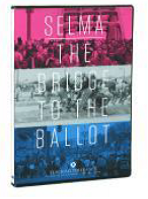Academics, Division of
Page Navigation
- Cleveland Metropolitan School District
- Office of Teaching and Learning
- Social Studies Education
-
Social Studies
Cleveland Metropolitan Schools Remember 1965
1965 At-A-GlanceThe U.S. began to celebrate Women’s History Month in 1987 to acknowledge their economic, political, social and educational contributions to the development of America. CMSD will continue to commemorate 1965 by celebrating those women who dared to make their voices heard during that turbulent year.
Events that took place in 1965 January 1965SNCC and the SCLC initiate a voter registration campaign in Selma, Alabama.January 4In his State of the Union Address, President Lyndon Johnson proposes to "eliminate every remaining obstacle to the right and the opportunity to vote".February 18Jimmy Lee Jackson was shot by state troopers for attempting to protect his mother during a march in Marion, Alabama. He died eight days later.February 25Malcolm X is assassinated in New York.March 7On "Bloody Sunday," civil rights activists, attempting a march to Montgomery, Alabama, are beaten by state troopers at the Edmund Pettus Bridge in Selma.March 9Rev. James Reeb, a white minister was attacked and beaten by four white men for coming to Selma to support the marchers. He died two days later.March 21With protection from federal troops, King leads thousands on a successful march from Selma to Montgomery.March 25Viola Luzzio, a white civil rights activist from Michigan, is murdered while driving marchers back to Selma.August 6President Lyndon Johnson signs the landmark Voting Rights Act of 1965, which eliminates all voting tests used to discriminate against minorities.August 11The black neighborhood of Watts in Los Angeles, Calefornia, explodes in a riot that leaves thirty-four people dead.Lesson Resources for the movie Selma
- Suggested Pre and Post Selma Activities
- The Civil Rights Movement Facts
- Selma Leaders
- Bio Poem Template
Free Resources For Educators
Teaching Tolerance

Bridge to the Ballot
The film kit and teacher's guide will be available mid-February. Observe the 50th anniversary of the Selma-to-Montgomery marches with your students! Recommended for grades six and up. Teaching Tolerance resources are free to educators.
Facing History and Ourselves

March from Selma to Montgomery Lesson Plan
In this lesson, students will draw on their understanding of voter discrimination and the philosophy of nonviolence as they watch an excerpt from the Eyes on the Prize video series, which documents the events that took place in Selma, Alabama, in March 1965. Students’ viewing is focused around the particular decisions made by individuals and groups in order to help them understand how the march from Selma to Montgomery was not inevitable; rather, the fact that the march happened represents the consequence of specific choices made by particular people who were influenced by their historical and social contexts. By focusing on the many choices people made that shaped this event, students come to understand that history is not inevitable, thus deepening their awareness of their own power to influence their community and world. Finally, studying the march from Selma to Montgomery reveals that many people were willing to risk their lives for the opportunity to vote free from harm or harassment. Comparing their own thoughts about voting to those of the protesters can help students develop their identities as future voters and citizens.
ABC-CLIO (African American Experience Data Base)

ABC-CLIO is an up to date data base of articles, images and recordings of world events. It's a great source for informational text.
The district link to ABC-CLIO is found on the SchoolNet Outreach page under the "Teacher Resource" tab.
Username: clevelandpsPassword: clevelandpsSelect the "African American Experience Data Base". Use "Selma" in the search engine.
Cleveland Public Library
The Cleveland Public Library continues their tradition of offering African American History Month programs throughout the Main Library and its branches to commemorate the rich history that helped shape this country.

Black History Month teaching resources
Celebrate Black History Month in your classroom this February with 17 lesson plans and resources that cover topics ranging from important civil rights anniversaries to discussions about race in current events. These resources provide authentic student-driven learning experiences that will help all kids understand and honor Black History Month.
Suggested Reading A-Z Books and Lessons
- Martin Luther King, Jr (Levels M, P and S) - Martin Luther King Jr. was one of the most important civil rights leaders in American history. He worked hard for equality and taught others how to stand up for what they believed in. This book tells the story of his courageous life from his birth in 1929 to his death in 1968.
- Riding with Rosa Parks (Level J) - recounts a period in American history when segregation laws denied African-American people equal rights. The story is told from the point of view of a fictitious character, Marissa, who witnesses the bravery Rosa Parks displayed when she refused to give up her seat on the bus. The story provides students with the opportunity to learn how one person can make a difference.
- Are We Living Dr. King's Dream? - A student wonders if Dr. King's dream of equality has come true.
Staff
Lavora "Gayle" Gadison, Social Studies Content ManagerOffice: 216.838.0289 | Email: lavora.gadison@clevelandmetroschools.org


